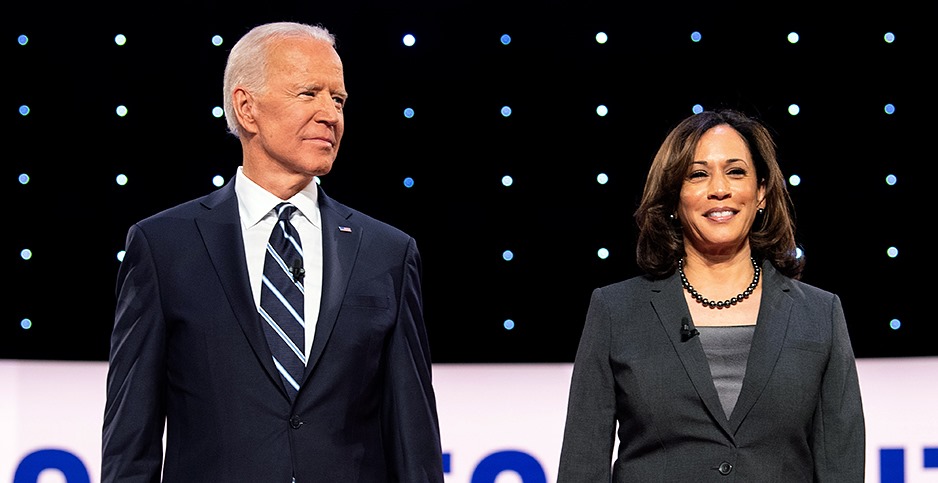
[dropcap]F[/dropcap]or young Indian girls who were growing up in America in the 70’s, there were few role models in political life that looked like them. The American president and vice-president were always white and always male. With President Obama’s inauguration they finally got to see a minority family in the White House.
Now with the nomination of Kamala Harris as vice president by Democratic presidential contender Joe Biden, comes the unprecedented prospect of a woman and a minority in the second highest position in the land.
Kamala, whose name means Lotus in Sanskrit, is of mixed Indian and Jamaican heritage. “My mom and dad, like so many other immigrants, came to this country for an education. Mom, from India. Dad, from Jamaica. And the Civil Rights movement of the 1960s brought them together,” Harris shared with her supporters recently. “That spirit of activism is why my mom, Shyamala, would always tell my sister and me, “Don’t just sit around and complain about things. Do something.”
Harris certainly did something, always a fighter for justice and equality. She first became a district attorney, and then California’s attorney General. She went on to become the first black and South Asian senator and then faced off several contenders to become Biden’s choice for vice president in the upcoming presidential elections
To read her memoir The Truths We Hold is to really understand her Indian background and her connections to the community. Throughout its pages, her mother Shyamala is a constant presence and Harris recalled, “My mother always said to me, “Kamala, you may be the first to do many things – make sure you’re the last.”
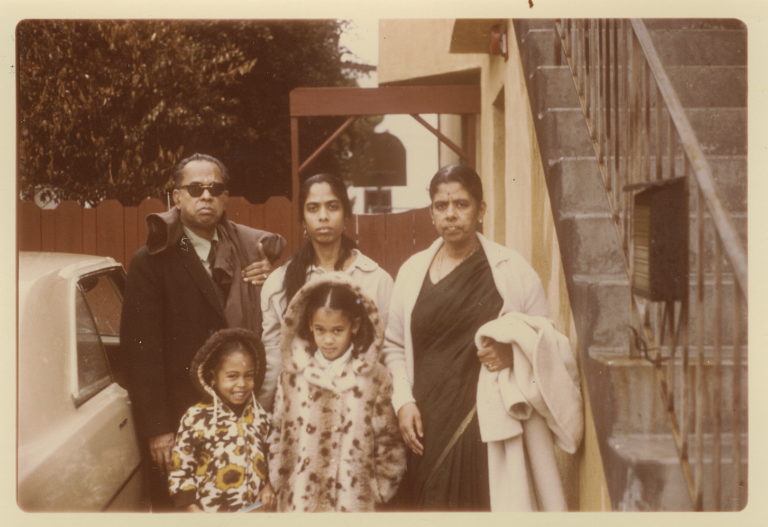
[dropcap]R[/dropcap]ecently Harris talked with Indian-Americans in a virtual conversation and shared some memories of her illustrious grandfather. She spent many childhood summers with him in Chennai, then known as Madras, and being one of his favorite grandchildren she was chosen to walk with him and his retired buddies on the beach.
She recalls, “I would hold his hand and I remember the stories that they would tell, and the passion with which they spoke about the importance of democracy, that passion that they had about the importance of having a democracy that spoke for the people and that was free of corruption, that was about fighting for everyone and treating people like equals. And as I reflect on those moments in my life that have had the most impact on who I am today – I wasn’t conscious of it at the time – but it was those walks on the beach with my grandfather that had a profound impact.”
[dropcap]F[/dropcap]or Indian-Americans there is a great sense of pride in her accomplishments as the first Indian-American, Asian American and Black woman to be the Attorney General of California, and then first senator of South Asian origin in the US Congress.
One remembers a low point, when months ago Harris had to abandon her own presidential bid due to lack of funding. Did the Indian-American community support Harris enough? Did her mixed heritage complicate things? One recalls the campaign merchandise, hats and mugs and even a black shirt with the exciting possibility: ‘We, the People – She, the President.’At that time I had written: “Will these become swag, curiosities, discards of a presidential race – or a promising bellwether for the future? Kamala Devi Harris is only 55 and her story certainly isn’t over – it has barely begun.”
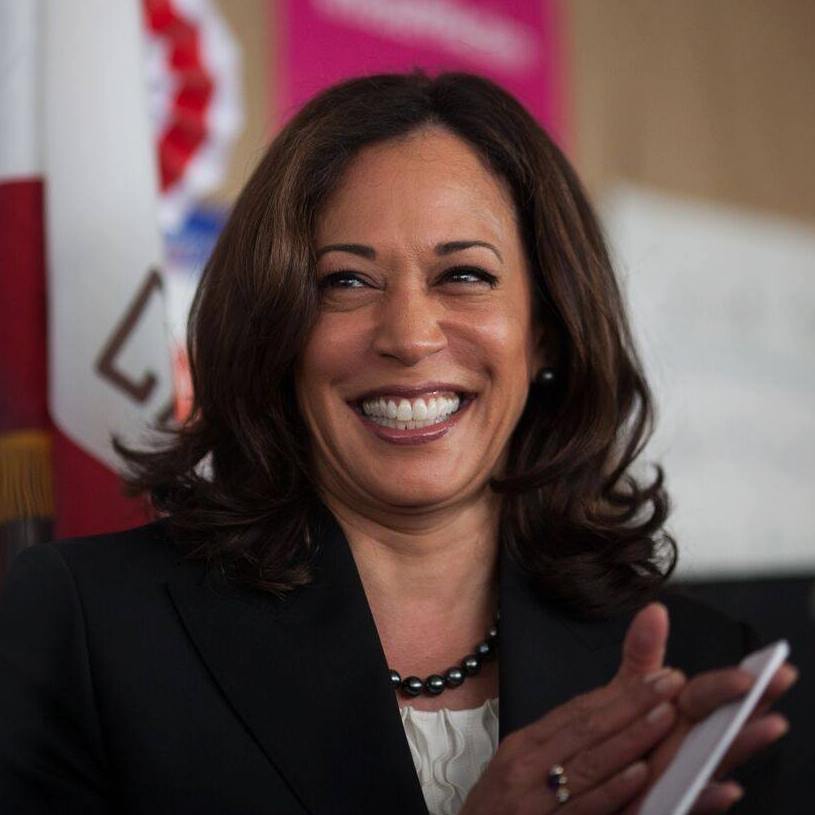
[dropcap]F[/dropcap]or many Indian-Americans it is a dream come true to have someone with an Indian name and heritage possibly in the White House come 2021. When Kamala Harris took the stage at the virtual DNC, she spoke about her mother Shyamala Gopalan Harris.
“She came here from India at age 19 to pursue her dream of curing cancer. At the University of California Berkeley, she met my father, Donald Harris, who had come from Jamaica to study economics,” said Harris. “ They fell in love in that most American way — while marching together for justice in the Civil Rights movement of the 1960s. In the streets of Oakland and Berkeley, I got a stroller’s-eye view of people getting into what the great John Lewis called good trouble.”
Social media has been inundated with comments sharing the great excitement from Asians in her nomination. Wrote one Indian-American woman: “Definitely cried when Kamalaben talked about her mom. All but 5 feet tall. My mom is a short Gujarati immigrant. She cleaned many rooms in her life, she ran a motel while my dad worked, and she gave me opportunities she never had. Her mom and story is my mom and story!”
Monica Kumar from Arizona commented, “Kamala Harris spoke beautifully and authentically to her Indian heritage. It is hard to describe what it means to be able to vote for her and Biden in my first Presidential election since becoming an American citizen.”
Neha Dewan, National Director of South Asians for Biden, is a young Indian-American. She speaks for her generation when she says, “Senator Harris has been trailblazer throughout her time in public office, and her selection as the Democratic nominee for Vice President has particular significance to both South Asian and Black women, who will be inspired to seek public office in unprecedented numbers in the future.”
So who is Kamala Harris? A strong woman with strong values and determination. While a student at Howard University she was part of the students who protested apartheid and called for divestment, and this passion for human rights has been her guiding light. Throughout her career she has taken up tough issues and the fight for justice.
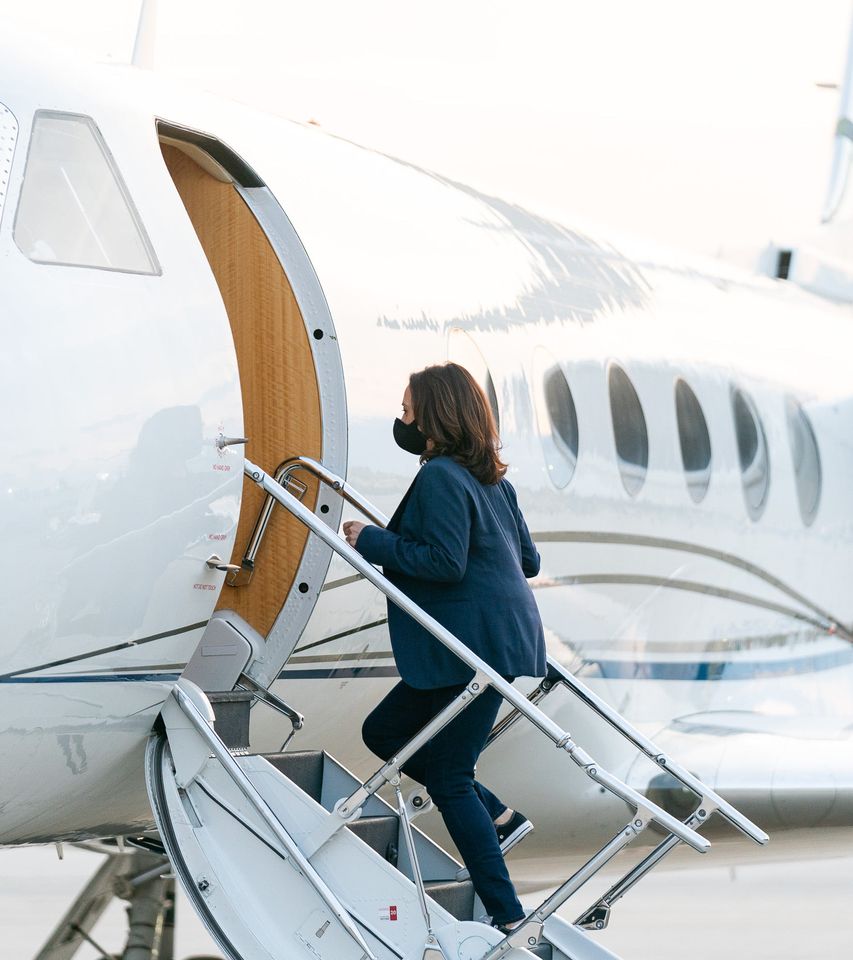
[dropcap]Y[/dropcap]et Kamala Harris is also about strong relationships, family connections and having a joyful life. A superb cook, her Sunday family dinners with her husband Doug and her stepchildren who call her Momala, are sacrosanct. There are photos of her as a child with her younger sister Maya in Madame Bovie’s ballet studio. She says, “I loved dancing as a child. I still do.” There are photos of birthday parties with kindergarten friends – and it is telling that her best friend then is still one of her closest friends.
As Joe Biden’s running mate, Kamala Harris is certainly off to a flying start in her famous Converse sneakers, setting her own path and energizing the Biden-Harris campaign.
“My daily challenge to myself is to be part of the solution, to be a joyful warrior in the battle to come,” as she wrote in her memoir. “Let’s not throw up our hands when it’s time to roll up our sleeves. Not now. Not tomorrow. Not ever.”
(A version of this article appeared in The Indian Scene)
Related Articles:
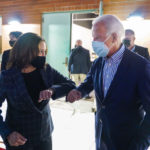
Kamala Harris and the Indian-American Vote
